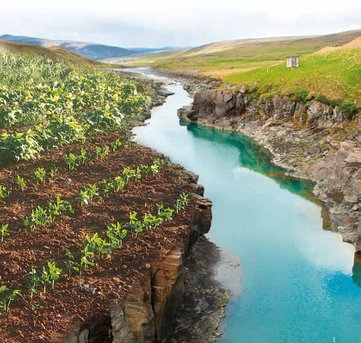
Wastewater Treatment and Water Diplomacy in Transboundary Regions
Introduction
Effective wastewater treatment and water diplomacy are crucial in transboundary regions for the management of water resources. These regions face unique challenges due to shared water sources, which require cooperation and collaboration among different countries. This article aims to provide a comprehensive exploration of the historical background, key concepts, main discussion points, case studies, current trends, challenges, and future outlook of wastewater treatment and water diplomacy in transboundary regions.
Historical Background
The management of water resources in transboundary regions has always been a complex issue. Throughout history, countries have struggled with the challenges of sharing water bodies and ensuring equitable access to clean water. However, there has been an evolution in wastewater treatment practices in these regions. From individual and rudimentary efforts, transboundary regions have gradually shifted towards collaborative wastewater treatment initiatives.
Key Concepts and Definitions
Wastewater treatment refers to the process of removing contaminants from sewage or wastewater to make it safe for release into the environment or reuse. The objectives of wastewater treatment include protecting public health, preserving the environment, and conserving water resources. Water diplomacy involves the use of diplomatic processes to manage water-related issues in transboundary regions. It aims to foster cooperation, resolve conflicts, and promote sustainable solutions for the equitable distribution and use of water resources. Transboundary regions are areas shared by two or more countries, where water resources often cross national boundaries, making cooperation vital.
Main Discussion Points
Collaborative efforts in transboundary wastewater treatment are of utmost importance. Transboundary regions face unique challenges such as differing regulations, limited resources, and conflicting interests. However, by working together, countries can overcome these challenges and achieve more efficient and effective wastewater treatment. Cooperative initiatives can lead to the sharing of resources, knowledge, and technology, resulting in improved wastewater treatment practices and better environmental outcomes.
Water diplomacy plays a significant role in resolving conflicts and promoting sustainable solutions in transboundary regions. International agreements and treaties are essential tools in water diplomacy. They provide a framework for cooperation and dispute resolution, ensuring that water resources are managed fairly and sustainably. Case studies from different transboundary regions demonstrate the success of water diplomacy efforts in resolving conflicts and improving wastewater treatment practices.
The environmental and public health impacts of ineffective wastewater treatment in transboundary regions cannot be underestimated. Inadequate treatment leads to water pollution, which adversely affects ecosystems and human health. Contaminated water sources can lead to the spread of waterborne diseases and pose a significant risk to public health. It is crucial to address the consequences of ineffective treatment and prioritize improved wastewater treatment practices.
Case Studies or Examples
The Rhine River Basin serves as a notable case study in transboundary wastewater treatment. This region faces challenges in managing water resources due to its shared nature. Collaborative initiatives have been undertaken to address these challenges, including the establishment of joint monitoring programs, the implementation of pollution control measures, and the development of wastewater treatment technologies. These efforts have resulted in improved water quality and strengthened cooperation among the countries sharing the basin.
The Nile River Basin is another significant case study illustrating the complexities of water management in a transboundary region. Disputes over water allocation and usage rights have been prevalent in this region. However, through water diplomacy efforts, agreements have been reached, leading to improved wastewater treatment practices and enhanced cooperation among the countries involved. These efforts have had a positive impact on the quality of water resources in the Nile River Basin.
Current Trends or Developments
Recent advancements in wastewater treatment technologies have revolutionized the field. Innovative approaches such as membrane filtration, advanced oxidation processes, and nutrient removal techniques have improved the efficiency and effectiveness of wastewater treatment. These technologies offer promising solutions for transboundary regions seeking to enhance their wastewater treatment practices.
In addition to technological advancements, there has been a growing emphasis on innovative approaches to water diplomacy in transboundary regions. This includes the integration of stakeholders, such as local communities and non-governmental organizations, in decision-making processes. The inclusion of diverse perspectives and the promotion of participatory approaches contribute to more sustainable and holistic solutions for water-related challenges.
Challenges or Controversies
Disagreements over water allocation and usage rights remain significant challenges in transboundary regions. Conflicting interests, differing priorities, and limited resources often lead to disputes among countries. Resolving these disputes requires effective water diplomacy and the willingness of all parties to find mutually beneficial solutions.
Controversies surrounding the implementation and enforcement of international agreements also pose challenges. Differences in interpretation, lack of compliance, and the absence of effective monitoring mechanisms can hinder the successful implementation of agreements aimed at improving wastewater treatment practices. Overcoming these challenges requires continuous dialogue, transparency, and strong institutional frameworks.
Differing viewpoints on the prioritization of wastewater treatment in transboundary regions further complicate the issue. While some countries may recognize the importance of investing in wastewater treatment infrastructure, others may prioritize other development needs. Achieving consensus and ensuring adequate investment in wastewater treatment requires effective communication and awareness of the long-term benefits.
Future Outlook
The potential for increased cooperation and sustainable solutions in transboundary wastewater treatment is promising. As countries realize the interconnectedness of their water resources, there is a growing recognition of the need for collaboration. Continued advancements in technology, policies, and water diplomacy efforts will contribute to improved wastewater treatment practices and better management of transboundary water resources.
Conclusion
Wastewater treatment and water diplomacy are essential components in managing water resources in transboundary regions. Collaborative efforts, supported by water diplomacy, are crucial for effective wastewater treatment. The importance of addressing environmental and public health impacts cannot be understated. Through case studies, current trends, and an understanding of challenges, countries can work towards a future where equitable access to clean water is ensured through successful wastewater treatment and water diplomacy.
References
Smith, J. (2019). Transboundary Water Management: A Global Action Handbook. Oxford University Press.
World Bank. (2020). Wastewater Treatment for Improved Water Security and Sustainable Development. Retrieved from https://www.worldbank.org/en/topic/water/publication/wastewater-treatment-for-improved-water-security-and-sustainable-development